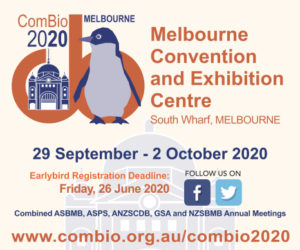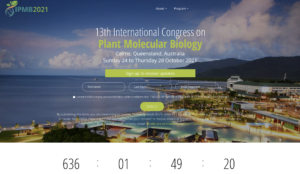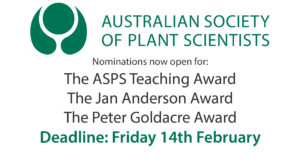- About
- Members
- Join
- Member log in
- Membership Renewal
- Member directory
- Life Members
- ASPS Life Member Professor Graham Farquhar
- ASPS Life Member Associate Professor Hendrik (Hank) Greenway
- ASPS Life Member Dr Marshall (Hal) D Hatch
- ASPS Life Member Dr Paul E Kriedmann
- ASPS Life Member Dr Mervyn Ludlow
- ASPS Life Member Emeritus Professor Rana Munns
- ASPS Life Member Conjoint Professor Christina E Offler
- ASPS Life Member Professor (Charles) Barry Osmond
- ASPS Life Member Emeritus Professor John W Patrick
- ASPS Life Member Dr Joe Wiskich
- Corresponding Members
- Elected Fellows
- Events
- Awards & Funding
- Employment
- Publications
- Research
- Teaching
- Menu
11 Feb International Day of Women and Girls in Science, award applications due this Friday.
09 February 2020
Dear ASPS members,
11 Feb is International Day of Women and Girls in Science.
February Phytogen is now available HERE. See the Plant Nutrition Trust Award reports and up coming conferences.
Applications for numerous prestigious ASPS awards are currently opened with a closing date 14th of February 2020. Nominate yourself. More details below.
Call for nominations for ASPS president elect
We are currently seeking nominations for the next ASPS president. If you have a passion for Plant Science and an interest in helping to drive and shape research and education in the Australian Plant Science community please consider nominating.
Nominations can be sent to the secretary@asps.org.au by Friday the 28th of February 2020
ASPS Research Awards
The Peter Goldacre Award and the Jan Anderson Award are the premier research awards from ASPS. The Peter Goldacre award is awarded for research contributions for early/mid-career researchers (male or female) within 10 years since PhD, and the Jan Anderson Award specifically recognises the significant contribution of mid-career female researchers.
ASPS Teaching Awards
The ASPS Teaching Award recognises excellence, innovation and/or other contributions with successful learning outcomes to teaching plant science at the University level.
Applications for these awards need to be sent to the secretary@asps.org.au by the 14th of February, 2020.
Please see full details and eligibility requirements on the ASPS website: https://www.asps.org.au/awards
Kind regards,
Dr Simon Williams
Honorary Secretary, ASPS
Phytogen February 2020
05 February 2020
Welcome to Phytogen for February. 2020 is the International Year of Plant Health. You can read more at the FAO website.
Also occurring this week will be United Nations International Day of Women and Girls in Science.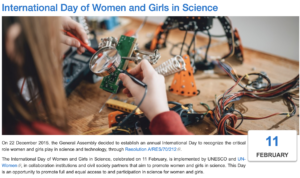
It is very timely then; to plan conferences and workshops for the year. If you want to advertise an event use this link. Below are some to get you thinking.
1. THE PLANT NUTRITION TRUST is inviting applications for awards to assist in carrying out a study tour or to attend a conference or such other activity related to their stated objectives. The TRUST has been established to encourage and promote research and technology transfer in the areas of plant mineral nutrition, soil fertility, fertiliser and soil amendment technologies and certain abiotic stresses. Related topics in agronomy and plant breeding etc will also be considered.
Awards will be made to promising PhD students, post-doctoral students and early-career scientists working in the areas mentioned above. Applicants must be currently working in Australia and linked with a recognised university or relevant institution. Details and application forms available by clicking on the below links. Applications close 20th March 2020.
pdf: PlantNutritionTrust_Intro&Appl_2020
word: PlantNutritionTrust_Intro&Appl_202
2. FOOD AND WATER SECURITY INTERNATIONAL WORKSHOP: ENGINEERING AQUAPORINS TO BOOST CROP YIELDS AND WATER RECYCLING TECHNOLOGIES
12 May 2020 to 15 May 2020.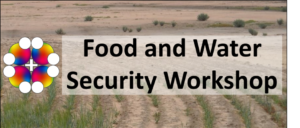
What types of new biotechnologies are needed to ensure food and water security in the future?
Join us for a workshop at the Shine Dome in Canberra (13-15th May 2020; https://www.shinedome.org.au/whats-on) to explore how we can use and engineer aquaporin proteins to boost crop productivity and advance water filtration technologies.
Student travel support is available thanks to ASPS – please apply, more details below. Discount early bird registration is now open and talks selected from abstracts will receive registration reimbursement – https://www.eventbrite.com.au/e/workshop-on-engineering-ion-channel-aquaporins-and-boosting-food-security-tickets-78557334101
Examples of workshop highlights include:
- Hear from Professor Steve Tyerman (University of Adelaide) and Professor Christophe Maurel (B&PMP, Montpellier) about the latest developments in controlling water relations, cell signaling and regulation of hydraulics in plants.
- Learn about the link between aquaporin function and cancer cell metastasis and the discovery of aquaporin ion channel features from Professor Andrea Yool’s research (University of Adelaide).
- Learn about the roles of aquaporins in influencing crop plant physiology from Professor Francois Chaumont’s research (UCLouvain, Belgium) on maize aquaporins, Professor Maki Katsuhara’s research (Okayama University) on barley aquaporins and A/Professor Tomoaki Horie’s work on rice aquaporins (Shinshu University).
- Learn about imaging the movement of element isotopes to understand aquaporin function from Professsor Keitaro Tanoi and A/Professor Natsuko Kobayashi (University of Tokyo).
- Discover new directions in technology development for water filtration from Aquaporin Asia’s Dr Sun Guofei. These technologies are used to purify astronaut waste water in space and can help us sure up our future water security on Earth.
- Build your knowledge in understanding how aquaporins help living cells tolerate osmotic stress and how we can use this information to create the biotechnologies of the future!
The 2020 International Ion Channel Aquaporin Workshop creates the opportunity to facilitate sharing knowledge, ideas and results in the area of studying the function and applications of ion-channel aquaporins. We have a particular focus on research related to engineering plant aquaporin function towards boosting future food security, and on research related to the study of ion channel aquaporins in plants and other Kingdoms of life.
We are looking forward to discussing potential avenues to engineer aquaporin function towards supporting future stability in crop productivity, improve water security and determine signaling processes that influence aquaporin function. Topics related to aquaporin permeability, regulation, signaling, physiological roles and evolutionary origins will be covered in the workshop.
There will be talks selected from submitted abstracts and registered speakers selected from abstract submissions will receive registration reimbursement. Courtesy of the Australian Society of Plant Scientists there is support for PhD/ECR student travel, and it would be wonderful if you are happy to encourage PhD/ECR students working on relevant research to contact us about sending in an abstract and applying for PhD student travel support towards participating in the workshop. The workshop is supported by the Australia-Japan Foundation and the Australian National University.
Further information related to the workshop can be found at the following webpage: https://biology.anu.edu.au/news-events/events/workshop-engineering-ion-channel-aquaporins-and-boosting-food-security
3. RN Robertson Travelling Fellowship. Applications opened 3rd February and close 2nd March 2020. Details here
4. ComBio2020 and IPMB2021
Here are reports from Kara Levin and Celine Mens, 2019 Plant Nutrition Trust Awardees.
Report on the Plant Biology 2019 conference: Plant Nutrition Trust, Kara Levin, University of Adelaide.
Plant Biology 2019, an event hosted by ASPB (American Society of Plant Biologists), took place in San Jose, California. I had the privilege to attend this conference along with over 1400 attendees. The conference covered a large number of areas within plant biology over the five days and was set-up to include major symposia sessions in the morning, networking events over lunch, and smaller specialised concurrent sessions in the afternoon. The major symposia talks covered some of the most interesting topics, many of them focused on seeing the larger picture within their niche field of research. An important concept presented at the conference was that the plant receptors used for triggering a symbiotic relationship with a pathogen were the same as those used to trigger a plant immune response – which raises the question on how such contrasting outputs are regulated by the same receptors. The data presented indicates that these receptors are influenced by the nutrient status of the plant. A plant experiencing nutrient deficiency is more likely to trigger a symbiotic response while one that is nutrient-sufficient will activate an immune response. This is an interesting concept for rhizosphere interactions, where a plant that is perhaps nitrogen deficient will induce symbiosis with microorganisms in the soil in order to reach sufficient nitrogen levels. This idea of dynamic plant responses should be considered in plant nutrition research.
Another fascinating talk was during the ‘Plant Synthetic Biology’ section. A group at the Max Planck Institute for Terrestrial Microbiology have created a more efficient Calvin-Benson-Bassham (CBB) cycle by using synthetic enzymes. Although applying this CO2-fixing system into agriculture is still in the research phase, it provided insights into the kind of ground-breaking research that is being made possible with new emerging technologies.
I presented a novel discovery from my PhD research on interactions between cereal cyst nematode and wheat during the symposia of ‘Plant-Biotic Interactions’. This was an exciting opportunity to discuss my results with a range of international researchers working on similar plant interactions. These discussions helped confirm my research findings as other researchers provided further evidence from their independent studies which reaffirmed of these novel plant-nematode interactions observed in my research. I sincerely thank ASPS for awarding me the Plant Nutrition Trust Travel Scholarship to assist in my conference travels. Attending Plant Biology 2019 was a great experience and perfectly timed as I finish writing a manuscript on my presented research as well as the rest of my PhD thesis.
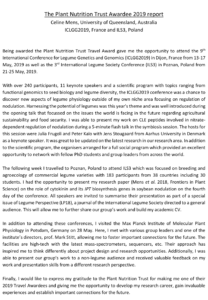
Lastly, and importantly, there is only one week left to apply for our Society awards. Apply Now!
We are also rolling out banners for each of our states to display at conferences, meetings and workshops. See the banner mask below.

If you have some great images, email them to Tam Salter.
Please ensure they are .PNG , .jpg, .TIFF, or .pdf, with greater than 300 dpi, email: william.salter@sydney.edu.au
If the images have people, they will have to sign a permission form: ASPSbanner2020 Please print the permission form and have them sign then send along with your image to Tam, we look forward to receiving your images.
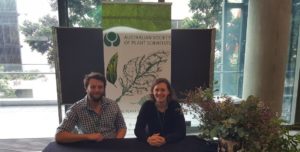
Call for nominations for ASPS president elect.
03 February 2020
Dear ASPS members,
Call for nominations for ASPS president elect
We are currently seeking nominations for the next ASPS president. If you have a passion for Plant Science and an interest in helping to drive and shape research and education in the Australian Plant Science community please consider nominating.
Nominations can be sent to the secretary@asps.org.au by Friday the 28th of February 2020
Reminding you that applications for numerous prestigious ASPS awards are currently opened with a closing date 14th of February 2020. Do you know anyone who should apply? Forward this e-mail now and encourage them to apply.
ASPS Research Awards
The Peter Goldacre Award and the Jan Anderson Award are the premier research awards from ASPS. The Peter Goldacre award is awarded for research contributions for early/mid-career researchers (male or female) within 10 years since PhD, and the Jan Anderson Award specifically recognises the significant contribution of mid-career female researchers.
ASPS Teaching Awards
The ASPS Teaching Award recognises excellence, innovation and/or other contributions with successful learning outcomes to teaching plant science at the University level.
Applications for these awards need to be sent to the secretary@asps.org.au by the 14th of February, 2020.
Please see full details and eligibility requirements on the ASPS website: https://www.asps.org.au/awards
Kind regards,
Dr Simon Williams
Honorary Secretary, ASPS
Recent Posts
Tags
Archives
- June 2025
- May 2025
- April 2025
- March 2025
- February 2025
- January 2025
- December 2024
- November 2024
- October 2024
- September 2024
- August 2024
- July 2024
- June 2024
- May 2024
- April 2024
- February 2024
- January 2024
- November 2023
- October 2023
- September 2023
- August 2023
- July 2023
- June 2023
- May 2023
- April 2023
- March 2023
- February 2023
- December 2022
- November 2022
- October 2022
- September 2022
- August 2022
- July 2022
- June 2022
- May 2022
- April 2022
- March 2022
- February 2022
- January 2022
- December 2021
- November 2021
- October 2021
- September 2021
- August 2021
- July 2021
- June 2021
- April 2021
- March 2021
- February 2021
- January 2021
- December 2020
- November 2020
- October 2020
- September 2020
- August 2020
- July 2020
- June 2020
- May 2020
- April 2020
- March 2020
- February 2020
- January 2020
- December 2019
- November 2019
- October 2019
- September 2019
- August 2019
- July 2019
- June 2019
- May 2019
- April 2019
- March 2019
- February 2019
- January 2019
- December 2018
- November 2018
- October 2018
- September 2018
- August 2018
- July 2018
- June 2018
- May 2018
- April 2018
- March 2018
- February 2018
- January 2018
- December 2017
- November 2017
- October 2017
- September 2017
- August 2017
- July 2017
- June 2017
- May 2017
- April 2017
- March 2017
- February 2017
- January 2017
- December 2016
- November 2016
- October 2016
- September 2016
- August 2016
- July 2016
- June 2016
- May 2016
- April 2016
- March 2016
- February 2016
- January 2016
- December 2015
- November 2015
- October 2015
- September 2015
- August 2015
- July 2015
- June 2015
- May 2015
- April 2015
- March 2015
- February 2015
- January 2015
- December 2014
- November 2014
- October 2014
- September 2014
- August 2014
- July 2014
- June 2014
Copyright 2017 Australian Society of Plant Scientists Disclaimer & Privacy
Website by Michael Major Media

